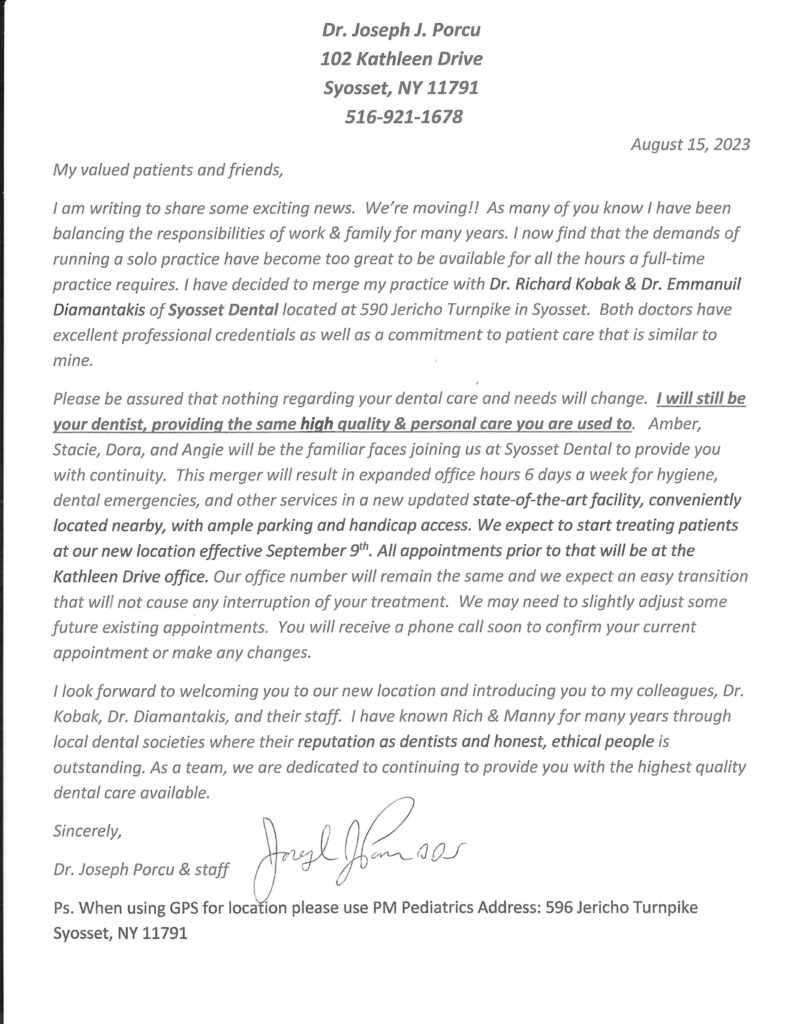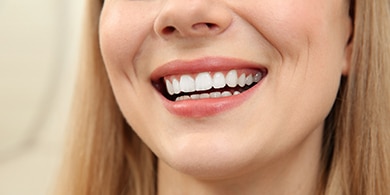 There are many reasons why you might experience a general lack of energy each day. If you’re sick, then your immune system is taking all of your energy. If you’re chronically ill, then that energy drain could become worse. By contrast, a lack of sleep might seem minor, but in some cases, you may not realize that you aren’t sleeping enough. For instance, if you have sleep apnea, then you can grow increasingly more tired all the time and never know why until your dentist diagnoses it. (more…)
There are many reasons why you might experience a general lack of energy each day. If you’re sick, then your immune system is taking all of your energy. If you’re chronically ill, then that energy drain could become worse. By contrast, a lack of sleep might seem minor, but in some cases, you may not realize that you aren’t sleeping enough. For instance, if you have sleep apnea, then you can grow increasingly more tired all the time and never know why until your dentist diagnoses it. (more…)
3 Dental Treatments that Relieve Headaches
 When it comes to common solutions to headaches, visiting your dentist may not top the list. Yet, in many cases, a recurring headache could be one of several other symptoms that could indicate trouble with your teeth, bite function, oral structures, or more. Like all other symptoms, curing your chronic headaches requires visiting your dentist for a comprehensive examination, and then undergoing an appropriate treatment plan to correct your condition. (more…)
When it comes to common solutions to headaches, visiting your dentist may not top the list. Yet, in many cases, a recurring headache could be one of several other symptoms that could indicate trouble with your teeth, bite function, oral structures, or more. Like all other symptoms, curing your chronic headaches requires visiting your dentist for a comprehensive examination, and then undergoing an appropriate treatment plan to correct your condition. (more…)
Recovering from Tooth Loss Better (with Implants)
 With a greater understanding of how tooth loss occurs, people today have a much better chance at preventing it from happening. Nevertheless, it remains a significant concern for many patients, and recovering from it requires choosing the most lifelike prosthesis to replace lost teeth. In many cases, that option involves the support of one or more dental implants, which offer more comprehensive results by reestablishing the functions of your lost teeth roots. (more…)
With a greater understanding of how tooth loss occurs, people today have a much better chance at preventing it from happening. Nevertheless, it remains a significant concern for many patients, and recovering from it requires choosing the most lifelike prosthesis to replace lost teeth. In many cases, that option involves the support of one or more dental implants, which offer more comprehensive results by reestablishing the functions of your lost teeth roots. (more…)
Understanding Tooth Loss Better
 Tooth loss is a big enough concern that, for many patients, it’s the worst thing that can happen to their dental health. Fortunately, with the exception of teeth that have to be extracted (such as impacted wisdom teeth), most others cases of tooth loss can often be prevented. The key is to understand how tooth loss most often occurs and what your greatest risks are, then work with your dentist to develop an ongoing dental health plan to consistently protect your smile from them. (more…)
Tooth loss is a big enough concern that, for many patients, it’s the worst thing that can happen to their dental health. Fortunately, with the exception of teeth that have to be extracted (such as impacted wisdom teeth), most others cases of tooth loss can often be prevented. The key is to understand how tooth loss most often occurs and what your greatest risks are, then work with your dentist to develop an ongoing dental health plan to consistently protect your smile from them. (more…)
How Modern Fillings Mirror Dentistry’s Advancement
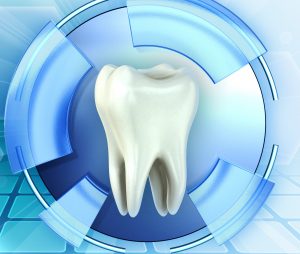 As much as dental technology and treatments have advanced over the years, the specifics of treating most dental conditions are still the same. For instance, if a cavity forms, then removing the bacteria and replacing the infected tooth structure is still the best way to treat it. However, modern dentistry now allows your dentist to fill your cavity while preserving a maximum amount of healthy tooth structure, and without changing the appearance of your tooth. Today, we take a look at tooth fillings as an example of how modern dentistry significantly improves traditional dental health techniques. (more…)
As much as dental technology and treatments have advanced over the years, the specifics of treating most dental conditions are still the same. For instance, if a cavity forms, then removing the bacteria and replacing the infected tooth structure is still the best way to treat it. However, modern dentistry now allows your dentist to fill your cavity while preserving a maximum amount of healthy tooth structure, and without changing the appearance of your tooth. Today, we take a look at tooth fillings as an example of how modern dentistry significantly improves traditional dental health techniques. (more…)
3 Things a Crown Can Treat Best
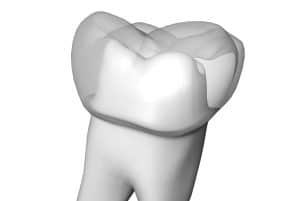 One of the reasons why dental crowns have remained a popular treatment option for centuries is because their design is highly effective. A crown mimics the size, shape, and contours of your healthy, natural tooth, and is placed over the tooth to restore its entire visible structure. With advanced technology and materials, today’s crowns are even more beneficial than ever, making them ideal solutions for a wide variety of dental health concerns. (more…)
One of the reasons why dental crowns have remained a popular treatment option for centuries is because their design is highly effective. A crown mimics the size, shape, and contours of your healthy, natural tooth, and is placed over the tooth to restore its entire visible structure. With advanced technology and materials, today’s crowns are even more beneficial than ever, making them ideal solutions for a wide variety of dental health concerns. (more…)
How Veneers Straighten an Imperfect Smile
 One of the greatest advantages of porcelain veneers is their ability to correct a wide range of cosmetic dental issues without requiring extensive treatment. For instance, rather than needing tooth bonding for a chipped tooth, a dental crown for a cracked one, and teeth-whitening to brighten them, an appropriate number of lifelike veneers can correct them all. In some cases, veneers may even be able to straighten an imperfectly contoured smile by addressing issues such as minor misalignment, crooked teeth edges, and more. (more…)
One of the greatest advantages of porcelain veneers is their ability to correct a wide range of cosmetic dental issues without requiring extensive treatment. For instance, rather than needing tooth bonding for a chipped tooth, a dental crown for a cracked one, and teeth-whitening to brighten them, an appropriate number of lifelike veneers can correct them all. In some cases, veneers may even be able to straighten an imperfectly contoured smile by addressing issues such as minor misalignment, crooked teeth edges, and more. (more…)
What Makes Digital X-Rays Better?
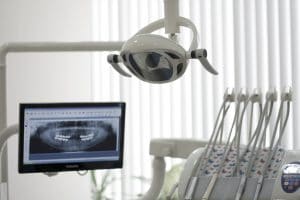 Prevention is the most important benefit of routine dental care, and that prevention relies on accurate, precise examinations. By thoroughly checking your teeth and oral tissues during every visit, your dentist can help spot signs of trouble that can be addressed before more serious concerns develop. For more accurate diagnoses, dentists have long relied on the ability to closely examine patients’ teeth and oral structures through X-rays. With digital radiography, the process is safer, more precise, and faster than ever. By utilizing digital imaging technology instead of traditional radiography, your dentist can capture highly detailed X-rays that are produced in nearly an instant. (more…)
Prevention is the most important benefit of routine dental care, and that prevention relies on accurate, precise examinations. By thoroughly checking your teeth and oral tissues during every visit, your dentist can help spot signs of trouble that can be addressed before more serious concerns develop. For more accurate diagnoses, dentists have long relied on the ability to closely examine patients’ teeth and oral structures through X-rays. With digital radiography, the process is safer, more precise, and faster than ever. By utilizing digital imaging technology instead of traditional radiography, your dentist can capture highly detailed X-rays that are produced in nearly an instant. (more…)
Why Fixing a Chipped Tooth Matters
 Compared to a broken or knocked-out tooth, a chipped tooth doesn’t always seem like much of a big deal for your oral health. In some cases, the unique appearance of the tooth may add to your smile’s charm. However, over time, even a seemingly minor chip in your tooth can become a significant concern to its long-term health and integrity. If left untreated, pressure from your bite can cause the damage in your tooth to grow increasingly worse and require more extensive treatment later. That’s why fixing a chipped tooth as soon as possible is essential for preserving your natural tooth structure, and we offer a number of customizable treatments to do so. (more…)
Compared to a broken or knocked-out tooth, a chipped tooth doesn’t always seem like much of a big deal for your oral health. In some cases, the unique appearance of the tooth may add to your smile’s charm. However, over time, even a seemingly minor chip in your tooth can become a significant concern to its long-term health and integrity. If left untreated, pressure from your bite can cause the damage in your tooth to grow increasingly worse and require more extensive treatment later. That’s why fixing a chipped tooth as soon as possible is essential for preserving your natural tooth structure, and we offer a number of customizable treatments to do so. (more…)
How Does Teeth-Whitening Actually Work?
 Professional teeth-whitening is one of the simplest cosmetic dental treatments, and as such, it’s simple to explain. The most common types of teeth stains, known as extrinsic stains, form on your tooth enamel (the outer surface of your teeth). To erase them and brighten your teeth, a powerful but safe teeth-whitening agent can be applied to their surfaces to break up and remove the stains. However, not every whitening treatment is the same, and the way it’s applied differs according to each patient’s personal preferences. (more…)
Professional teeth-whitening is one of the simplest cosmetic dental treatments, and as such, it’s simple to explain. The most common types of teeth stains, known as extrinsic stains, form on your tooth enamel (the outer surface of your teeth). To erase them and brighten your teeth, a powerful but safe teeth-whitening agent can be applied to their surfaces to break up and remove the stains. However, not every whitening treatment is the same, and the way it’s applied differs according to each patient’s personal preferences. (more…)
